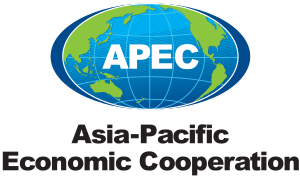Business and Economy
APEC urged to boost capacity building for FTA/RTA negotiations
MANILA — Member economies of the Asia-Pacific Economic Cooperation (APEC), including the Philippines, need to ensure the continuous strengthening of capacity building on negotiations for regional trade agreements (RTA) and free trade agreements (FTA).
In a policy note, Philippine Institute for Development Studies (PIDS) senior research fellow Erlinda Medalla and research fellow Francis Mark Quimba said capacity building is crucial and necessary in cooperation and integration efforts between two or among several country partners.
The Republic of Korea, in cooperation with Chile, Peru and the Philippines, conducted in 2010 a comprehensive survey, Capacity Building Needs Initiative (CBNI), to identify the most challenging areas in trade agreements.
The survey identified the most challenging areas relevant to negotiation which included lack of human resources with necessary experience and/or financial resources to beef up capacity.
When it comes to implementation, however, consensus building, lack of domestic institutions, structural reform, and outreach of FTA and RTA benefits came out on top in the survey as key areas for capacity building.
The 2012 CBNI thus had improved with a goal of narrowing FTA capacity among member-economies and enhancing trade policy capacity by sharing best practices.
“While participating APEC economies already deemed both the 2010 and the 2012 CBNI helpful, more are needed to ensure sufficient capacity building that the APEC economies envision.
More areas are needed to be covered, as well as more economies,” said Medalla and Quimba.
To further strengthen capacity building, the study urged APEC members to consider providing a direct link to corresponding materials on the APEC Information Management Portal website related to the RTAs and FTAs and training resources offered by other international organizations.
“Lead economies should also consider organizing capacity-building activities on directly related topics such as FTA implementation issues and ROO (rules of origin) provisions,” it said.
Medalla and Quimba said the CBNI should cover sectors requiring further discussion and clarification on negotiation techniques, e-commerce, labor, sanitary and phytosanitary, ROO, government procurement and FTA implementation.
They said APEC members should likewise discuss sectors left uncovered in previous CBNIs and newly emerging sectors in mega RTAs and FTAs.
Further, Medalla and Quimba said the APEC economies should also strengthen capacity building that would effectively enhance the readiness of economies on the ground.
“APEC should gear capacity building toward taking advantage of opportunities opened up by the FTA/RTA. This is especially with respect to making the FTAs/RTAs not just commercially viable but as inclusive as possible,” they added.






















